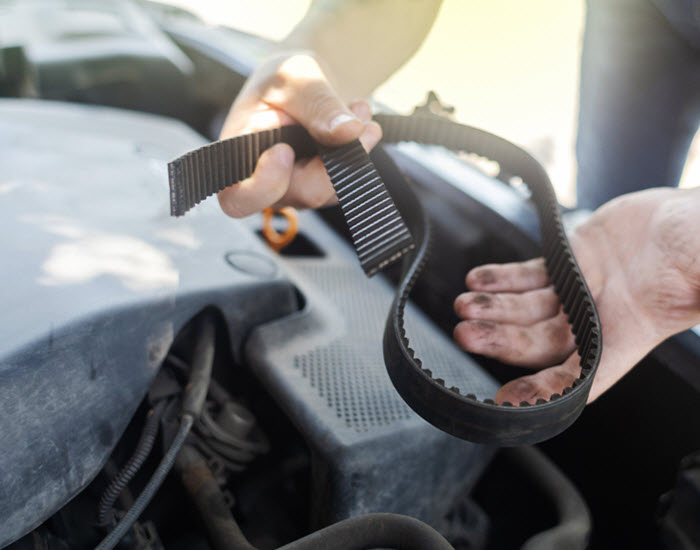Timing Belt/Chain Service
Timing Belt/Chain Service
Comprehensive Service and Repair of The Timing Belt/Chain in Atlanta and Dallas
As a car owner, you are solely responsible for ensuring the proper performance of your vehicle. It is essential to keep your car’s engine running smoothly, as it is equivalent to the heart of a human. Servicing your car’s engine within the recommended timeline is crucial, as it ensures your vehicle’s longevity.
Several complex systems comprise a car’s engine, and timing belts and chains are among the most crucial components, working diligently to synchronize the movements of the engine’s internal parts. While their functions may seem simple, their impact on the engine’s performance is profound. Here, you will learn about the critical role of timing belts and chains, exploring how they contribute to engine performance and why their maintenance is essential for the health of your vehicle.
Understanding Timing Chains and Belts
Timing belts and chains are mechanisms designed to ensure precise timing between the rotation of the crankshaft and the camshaft in an internal combustion cycle. This synchronization is crucial for proper valve operation, guaranteeing that valves open and close at the correct times during the engine’s combustion cycle.
Timing belts are typically made of reinforced rubber with high-tensile fibers. They have teeth on one side that mesh with the gears on the crankshaft and camshafts, ensuring accurate timing. Though timing belts are quieter and lighter than chains, they are more prone to wear and degradation over time.
On the other hand, timing chains are composed of metal alloy links and resemble bicycle chains. They are heavier and more vigorous than belts, offering greater durability and longevity. Timing chains are found in modern engines, which are designed for high performance and longevity.

Importance of Timing Belt
The timing belt controls the opening and closing of the engine’s valves at the right time during the engine’s intake and exhaust strokes. Here are some key points highlighting the importance of timing belts,
- Prevents Engine Damage: A worn-out timing belt can lead to misalignment of the engine’s components, resulting in catastrophic engine failure.
- Maintains Engine Performance: A properly functioning timing belt ensures optimal engine performance, resulting in improved fuel efficiency and smooth operation.
- Avoids Costly Repairs: Timely replacement of the timing belt can prevent costly repairs that result from belt failure.
Importance of Timing Chain
While timing chains are known for their durability, they are not invincible. Understanding the importance of timing chains is crucial for engine maintenance.
- Longevity: Timing chains are designed to last longer than timing belts, providing extended durability and reliability.
- Low Maintenance: Unlike timing belts, which require periodic replacement, timing chains are less prone to wear and tear, thereby reducing maintenance costs.
- Optimal Engine Performance: A properly functioning timing chain ensures precise synchronization of the engine components, leading to optimal performance.
Signs of Timing Belt and Timing Chain Issues
Both timing belts and timing chains can wear out over time, resulting in various performance issues. Common signs of timing chain issues include engine misfires or hesitation, unusual noises such as rattling or clicking sounds coming from the engine, difficulty in starting the engine, and visible wear or damage to the timing belt or timing chain.
Above everything, it’s vital to listen to the sounds that your car makes. Unusual rattling noises coming from the engine can indicate damage to the timing belt or chain. Other signs of a timing issue include inconsistent engine performance, a high-pitched squeal, slipping gears, or difficulty starting your car. If you experience any of these problems, it’s crucial to have your vehicle inspected by a qualified technician like our ASE-certified technicians in the European Service Center, located near you in Alpharetta, Atlanta Piedmont, Atlanta Roswell, Duluth, Dallas Cedar Springs, Highland Rock, Houston, and North Dallas across Atlanta and Dallas.
FAQs

 Texas
Texas
